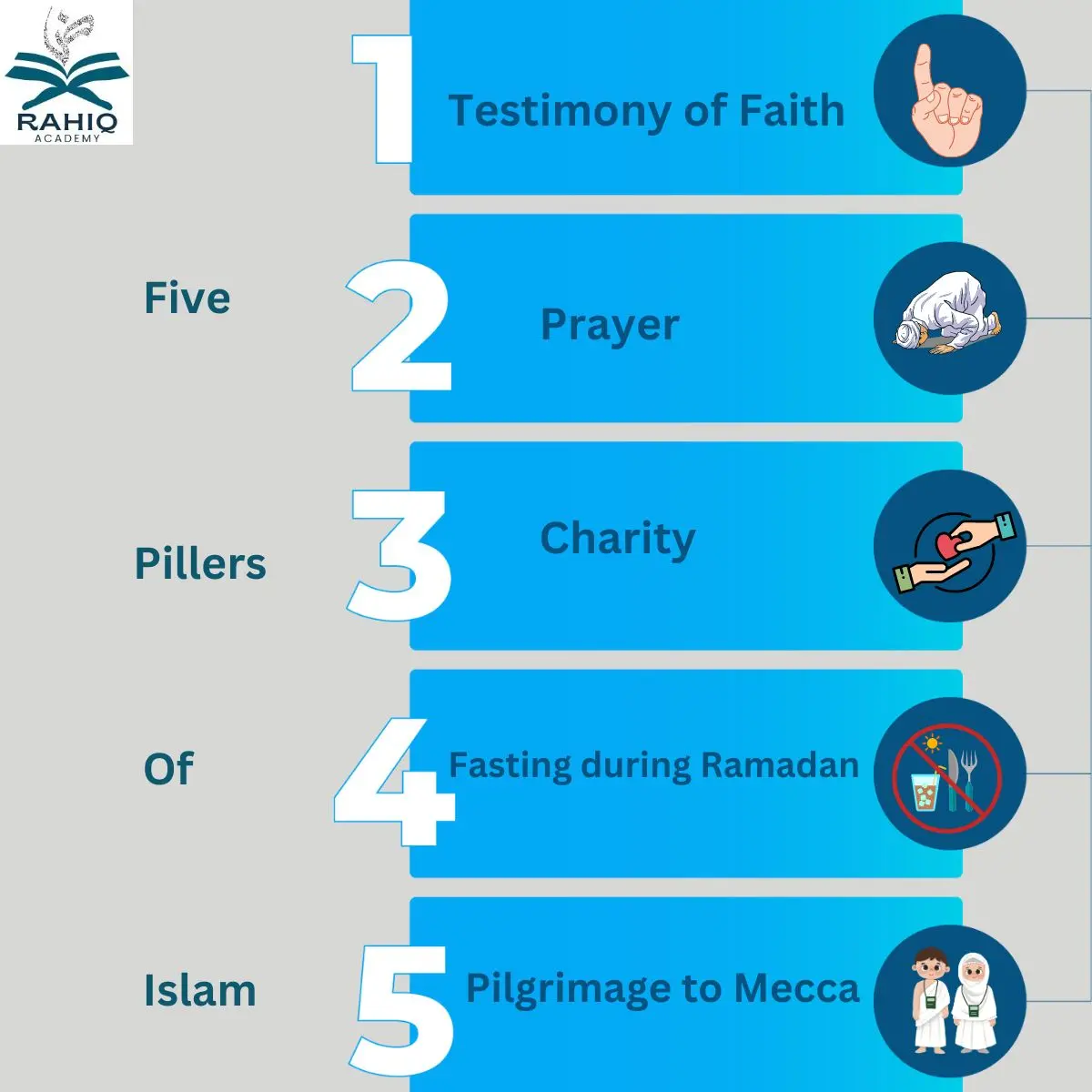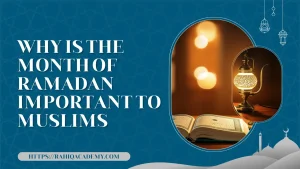Starting your journey as a Muslim is an important life change. This new Muslim convert guide offers essential information to help you understand Islam’s core beliefs, find support, and navigate your new path. Learn about the Five Pillars, get practical advice, and gain a deeper understanding of this beautiful faith.
Understand the Five Pillars of Islam

The Five Pillars of Islam are fundamental practices that form the foundation of a Muslim’s faith and actions. These pillars represent the core beliefs and obligations that guide a Muslim’s daily life and spiritual journey. Here is an in-depth Understand the Five Pillars of Islam:
1.Shahada (Testimony of Faith)
The Shahada is the declaration of faith and the first and most crucial pillar of Islam. It is the affirmation that “There is no god but Allah, and Muhammad is His Messenger” (لا إله إلا الله محمد رسول الله). This statement signifies the acceptance of the monotheistic belief in one God and the recognition of Muhammad as the final prophet.
Arabic: “أشهد أن لا إله إلا الله وأشهد أن محمدًا رسول الله”
English: “I testify that there is no god but Allah, and I testify that Muhammad is the Messenger of Allah.”
The Shahada must be recited with sincerity and conviction to become a Muslim. It embodies the essence of Islamic belief and serves as the foundation for the other pillars.
2.Salah (Prayer)
Salah, or the ritual prayer, is performed five times a day at prescribed times. These prayers are a direct link between the worshipper and Allah, providing spiritual nourishment and a constant reminder of the presence of God in one’s life. The specific names and times for each prayer are:
- Fajr: Performed before dawn.
- Dhuhr: Performed after the sun passes its zenith, around noon.
- Asr: Performed in the afternoon, before sunset.
- Maghrib: Performed immediately after sunset.
- Isha: Performed at night, after the twilight has disappeared.
The Quran emphasizes the importance of prayer:
Arabic: “وَأَقِيمُوا الصَّلَاةَ وَآتُوا الزَّكَاةَ وَارْكَعُوا مَعَ الرَّاكِعِينَ” (Al-Baqarah, 2:43)
English: “And establish prayer and give zakah and bow with those who bow [in worship and obedience].” (Quran 2:43)
Prayers involve a specific sequence of physical movements and recitations, including standing, bowing, prostrating, and sitting. They are a demonstration of submission, humility, and devotion to Allah.
3.Zakat (Charity)
Zakat is the third pillar and refers to the obligatory almsgiving or charity. It is a fixed percentage (2.5%) of a Muslim’s savings that must be given annually to those in need. Zakat serves as a means of purifying one’s wealth and ensuring a fair distribution of resources within the community.
The significance of Zakat is highlighted in the Quran:
Arabic: “خُذْ مِنْ أَمْوَالِهِمْ صَدَقَةً تُطَهِّرُهُمْ وَتُزَكِّيهِمْ بِهَا وَصَلِّ عَلَيْهِمْ” (At-Tawbah, 9:103)
– **English**: “Take, [O Muhammad], from their wealth a charity by which you purify them and cause them increase, and invoke [Allah’s blessings] upon them.” (Quran 9:103)
Zakat is distinct from voluntary charity (sadaqah) and is a mandatory act of worship. It emphasizes social responsibility and compassion for the less fortunate.
4. Sawm (Fasting during Ramadan)
Sawm, the fourth pillar, involves fasting during the Islamic holy month of Ramadan. From dawn until sunset, Muslims abstain from food, drink, smoking, and marital relations. Fasting is an act of worship, self-discipline, and empathy for the poor and hungry.
The purpose of fasting is to develop self-control and mindfulness of Allah. The Quran mentions the obligation of fasting:
Arabic: “يَا أَيُّهَا الَّذِينَ آمَنُوا كُتِبَ عَلَيْكُمُ الصِّيَامُ كَمَا كُتِبَ عَلَى الَّذِينَ مِن قَبْلِكُمْ لَعَلَّكُمْ تَتَّقُونَ” (Al-Baqarah, 2:183)
English: “O you who have believed, decreed upon you is fasting as it was decreed upon those before you that you may become righteous.” (Quran 2:183)
Ramadan is a time for increased prayer, reflection, and community. It culminates in the celebration of Eid al-Fitr, a festival marking the end of the fast.
5. Hajj (Pilgrimage to Mecca)
Hajj is the fifth pillar and involves a pilgrimage to the holy city of Mecca. It is an obligation for Muslims who are physically and financially able to perform it at least once in their lifetime. Hajj takes place during the Islamic month of Dhul-Hijjah and includes a series of rituals commemorating the actions of the Prophet Ibrahim (Abraham) and his family.
The Quran outlines the importance of Hajj:
Arabic: “وَأَذِّنْ فِي النَّاسِ بِالْحَجِّ يَأْتُوكَ رِجَالًا وَعَلَى كُلِّ ضَامِرٍ يَأْتِينَ مِن كُلِّ فَجٍّ عَمِيقٍ” (Al-Hajj, 22:27)
English: “And proclaim to the people the Hajj [pilgrimage]; they will come to you on foot and on every lean camel; they will come from every distant pass.” (Quran 22:27)
The pilgrimage includes rituals such as Tawaf (circling the Kaaba), Sa’i (walking between the hills of Safa and Marwah), and the symbolic stoning of the devil. Hajj symbolizes the unity of Muslims and their submission to Allah.
Support for New Muslim Converts

Embracing Islam as a new Muslim convert can be an overwhelming experience, filled with both excitement and challenges. It’s crucial for new Muslims to seek support from the community and knowledgeable individuals. Here are some key areas of Support for New Muslim Converts:
- Community Engagement: Joining a local mosque or Islamic center can provide a sense of belonging and community. It’s an opportunity to meet fellow Muslims, participate in communal prayers, and engage in social activities.
- Educational Resources: Understanding the basics of Islam and deepening one’s knowledge is essential. New Muslims can benefit from classes, lectures, and online resources. RAHIQ ACADEMY offers valuable courses and materials that cater to different levels of understanding.
- Mentorship: Having a mentor can greatly assist in navigating the early stages of embracing Islam. A mentor can offer guidance, answer questions, and provide emotional and spiritual support.
- Personal Development: Islam encourages continuous self-improvement. New Muslims should focus on developing their character, ethics, and spirituality. This includes cultivating patience, gratitude, and sincerity in all actions.
Advice for new Muslim converts
Transitioning into a new faith can be a profound experience, but it can also come with challenges. Here are some pieces of advice for new Muslim converts:
Take Your Time:
Learning about Islam is a gradual process. It’s important not to feel overwhelmed by trying to understand everything at once. Focus on the basics and build your knowledge over time.
Seek Knowledge:
As the Prophet Muhammad (peace be upon him) said, “Seeking knowledge is an obligation upon every Muslim” (Sunan Ibn Majah 224).
Start with the Quran and Hadith, and seek explanations from reliable scholars and sources.
Practice Patience:
Patience is a virtue highly emphasized in Islam. There may be challenges and adjustments, especially if your conversion impacts your relationships and lifestyle. Remember that patience and perseverance are key.
Stay Connected with Allah:
Establishing a strong relationship with Allah through prayer and supplication is crucial. The Quran states, “Indeed, with hardship [will be] ease” (Quran 94:6).
Trust in Allah’s plan and seek His guidance in every aspect of your life.
Embrace the Journey:
Embracing Islam is a journey of continuous growth and self-discovery. Celebrate your progress and be kind to yourself as you navigate your new path.
The Importance of True Understanding
True understanding of Islam goes beyond mere rituals and practices. It involves a deep comprehension of the faith’s principles, ethics, and worldview. New Muslims are encouraged to explore the spiritual and intellectual dimensions of Islam. This includes studying the Quran, understanding the Prophet’s (peace be upon him) life and teachings, and reflecting on the purpose of life.
One key aspect of true understanding is recognizing the universality and timelessness of Islamic teachings. Islam’s message of peace, justice, and compassion is relevant to all times and places.
The Quran states,
“وَمَا أَرْسَلْنَاكَ إِلَّا رَحْمَةً لِّلْعَالَمِينَ” (Al-Anbiya, 21:107)
which translates to
“And We have not sent you, [O Muhammad], except as a mercy to the worlds.”
Moreover,The Importance of True Understanding involves an appreciation of Islam’s contributions to various fields, including science, philosophy, and art. The Islamic Golden Age was a period of remarkable intellectual and cultural achievements.
Understanding this heritage can inspire new Muslims to appreciate the rich legacy of their faith.
FAQ
Q:Which Religion Converts Most to Islam?
Islam attracts individuals from diverse backgrounds, including people of various religions like Christianity, Buddhism, Hinduism, Judaism and non-religious affiliations. While data on conversions may vary by region.
Q:What Are the Requirements to Convert to Islam?
A:Converting to Islam is a simple and welcoming process. Here are the essential requirements:
- Belief in the Core Tenets Believe in the oneness of Allah (God) and accept that Prophet Muhammad ﷺ is the final messenger.
- Sincere Intention
- Learning and Practicing: it’s encouraged to learn and gradually begin practicing the Five Pillars, which include daily prayers, fasting
- find support by reaching out to mosques, Islamic centers, or online platforms
Q:How Do I Become a New Muslim?
A:Accepting Islam is a significant and transformative experience. Here’s a straightforward guide:
- Explore Islam’s Core Beliefs
- Recite the Shahada
- Start Practicing Islam Gradually
- Connect with a Supportive Community
Q:How to Become Muslim (Shahada)?
A:The Shahada is a simple statement that affirms belief in Islam’s core message: “Ashhadu alla ilaha illallah, wa ashhadu anna Muhammadan rasulullah”
which means, “I bear witness that there is no deity but Allah, and I bear witness that Muhammad is the messenger of Allah.” This declaration expresses belief in the oneness of Allah and acceptance of the Prophet Muhammad ﷺ.
Conclusion
The journey of embracing Islam is a deeply personal and transformative experience. The Five Pillars of Islam provide a foundational framework for a Muslim’s faith and practice. Support and guidance from the community, along with a commitment to continuous learning, can greatly enhance a new Muslim’s understanding and practice of Islam. Remember, the path to understanding and embodying the teachings of Islam is a lifelong journey, filled with growth, challenges, and blessings.
For more resources and guidance, visit RAHIQ ACADEMY, a trusted source for Islamic education and support.
At Rahiq academy we offer Trusted Course espicailly made for new muslim Converts to inlight the new path to them by qualified tutors welcoming our new sisters and brothers




